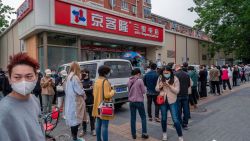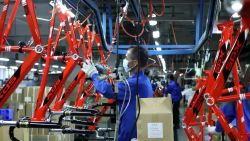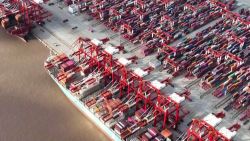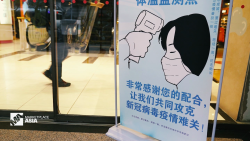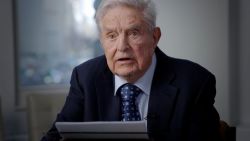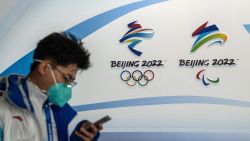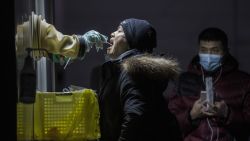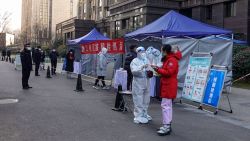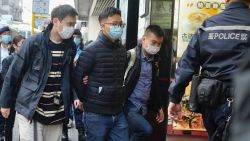Hong Kong stocks suffered their worst day in more than three months on Monday as long-running protests in the city saw escalating levels of violence.
The Hang Seng Index (HSI)dropped more than 2.6%, its worst single-day percentage decline since the beginning of August, according to Refinitiv data.
Monday’s declines came on the heels of new and shocking levels of violence in the Asian financial hub. A traffic officer shot a 21-year-old protester and fired two more live rounds early in the day. The protester had surgery and is in critical condition, hospital authorities say.
Later, in another part of the city, a man who confronted a group of protesters was doused in a flammable liquid and set alight. The incident was captured in a graphic video seen by CNN.
Protests disrupted public transit throughout the city on Monday, as demonstrators blocked roadways and several subway lines experienced delays. Several months of protests have plunged Hong Kong into its first recession in a decade.
Monday’s fall wiped out the Hang Seng’s gains posted last week, when optimism over the prospects of a US-China trade deal lifted Asian markets.
The city’s real estate stocks were hit particularly hard, with big property developers like Swire Pacific (SWRAY), Wharf Real Estate, Sun Hung Kai Properties (SUHJF) and New World Development (NDVLY) all dropping more than 4%.
While Hong Kong led losses in the region, other major Asian markets were all down Monday as investors also tried to make sense of the muddled state of US-China trade relations.
China’s Shanghai Composite (SHCOMP) declined 1.8%. South Korea’s Kospi (KOSPI) slumped 0.6%. Japan’s Nikkei (N225) edged down 0.3%.
Monday was the first opportunity that markets in Asia had to respond to comments from US President Donald Trump, who said Friday in the United States that he has yet to agree to rolling back tariffs. That undercut a statement from China’s Commerce Ministry that indicated a willingness to make such a concession as part of the first phase of a trade deal between the two countries.
“They’d like to have a rollback,” Trump said. “I haven’t agreed to anything. China would like to get somewhat of a rollback, not a complete rollback because they know I won’t do it.”
A day earlier, a spokesman for China’s Ministry of Commerce told reporters that US and Chinese negotiators had discussed rolling back tariffs, saying the rollbacks could happen even before a “phase one” trade deal is signed.
Despite Trump’s remarks, Wall Street ended last week at record highs.



